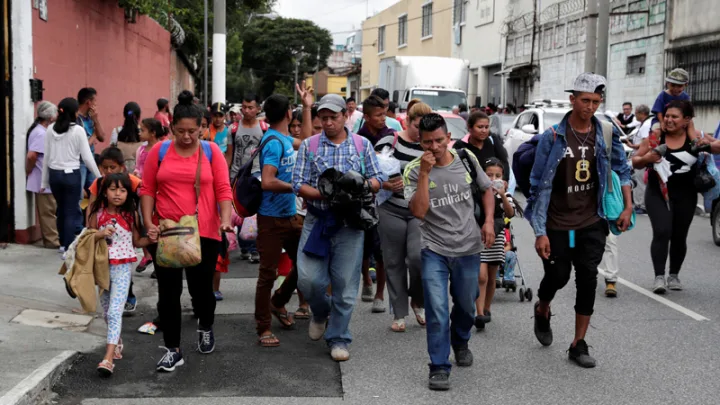Guatemala’s bloody civil war came to an end with the signing of Peace Accords in 1996. Since then, civil society organizations have been bravely grappling with the legacy of this horrific conflict by endeavoring, among other things, to treat the victims of genocide. The Commission for Historical Clarification –Guatemala’s version of a truth and reconciliation commission– found that gross human rights violations were committed by the Guatemalan army, largely against Mayan communities in the rural mountainous areas of the country. For example, nearly 177 people were indiscriminately slaughtered during the Rio Negro massacre of 1982. Yet as of today, no one has been held accountable for the crimes against humanity committed during the war. In fact, General Efrain Rios Montt, head of the military regime from 1982 to 1984 and an accused perpetrator of genocide in two different truth commission reports, currently serves as a member of the Guatemalan Congress. A culture of impunity has paralyzed the country, allowing illegal armed groups and drug operations to flourish, jeopardizing the lives of human rights defenders.
Alvaro Colom
In November 2007, the election of President Alvaro Colom opened a window of opportunity. As Guatemala’s first left-leaning head of state in half a century, Colom has pledged to pursue justice for past crimes, improve the environment for civil society activists and generally strengthen the social fabric of his torn but vibrant country. Although his winning National Union of Hope party was rocked by assassinations in the months leading up to the general election, Colom has courageously taken a new, proactive approach to human rights. He began by creating a new Ministry for Human Rights and Peace and appointing two well-known human rights activists, Ruth Del Valle and Orlando Blanco, to be its leaders. Perhaps more audaciously, Colom announced in February 2008 that he would open previously sealed military archives so that “we can know the truth, to start building on a foundation of truth and justice.”
This was an incredibly bold, and controversial move. In short, for the first time, Guatemalan civil society leaders can access plans and records that may finally shed some light on the military’s hand in the perpetration of genocide during the Civil War. In order to ensure that this measure leads to sustainable progress towards improving human rights in Guatemala, Colom should take the following steps:
- 1) Make certain that the archives are intact and that the documents are indeed all accounted for. I recently had a conversation with a Guatemalan human rights lawyer who expressed concern that researchers would find the archives empty once access was granted. This sounds quite basic but is a legitimate concern of the human rights community, and would be a huge blow to Colom’s credibility.
- 2) Guarantee that the archives can be accessed without reprisal. Guatemala’s human rights community is one of the most threatened on the planet, particularly those who take on the human rights violations committed during the internal armed conflict. As Philip Alston, the UN Special Rapporteur on Extrajudicial, Summary or Arbitrary Executions, has noted (cited here):
- “Death threats, fears of imminent extrajudicial execution and assassinations of human rights defenders are alarmingly common. Those defenders most frequently assassinated, such as trade unionists, peasant workers (campesinos), indigenous leaders or environmental activists, have been upholding economic, social or cultural rights. Defenders seeking truth and justice for human rights violations committed during the internal armed conflict have also been particularly targeted.”
- Not surprisingly, the military establishment quickly denounced Colom’s move to open the archives, with retired general Otto Perez Molina (whom Colom defeated on his way to the presidency) labeling it a “political stunt.” Opposition from any corner that leads to violence or other forms of reprisal against those who access the documents should not be tolerated.
- 3) Allow information gathered from the archives to be used in criminal proceedings, and make sure these proceedings advance without impediment. Just last week, community activist Guillermo Chen’s home was attacked, presumably as retribution for his participation in court hearings about the Rio Negro massacres. Documentary evidence of mass crimes, which the archives could potentially yield, might create a tense and explosive domestic political environment, one that could quickly spill over into violence.
Despite these pitfalls and potential risks, Colom’s move is an immensely positive and necessary step toward improving human rights in Guatemala, and he should be applauded for his courage. It is my hope that this small but important step is only the first of many.

Reply